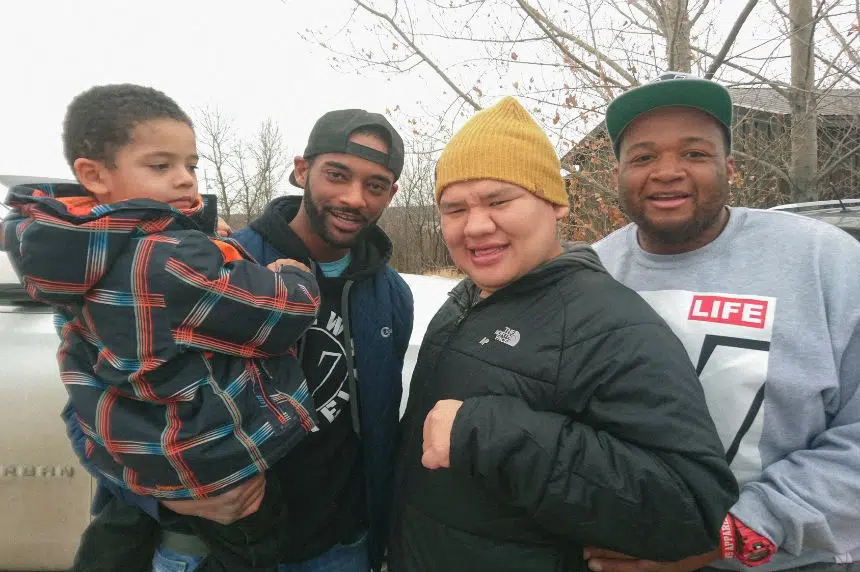A Regina man with severe disabilities has lost his longtime weekend respite care workers after they received an ultimatum from their second employer.
At 26 years old, Matthew “Matty” Brandon has the cognitive ability of a toddler. He’s non-verbal and has cerebral palsy, fetal alcohol syndrome and autism which requires him to have 24/7 care.
Brandon goes to a day program at Ranch Ehrlo Society during the week and on weekends he’s in independent respite care to give his foster parents a break.
His respite care workers, Sami Melles and Nick Davis — who also work with him at Ranch Ehrlo during the week — take turns looking after him on the weekends as well.
Last fall, Melles and Davis were told by their employers at Ranch Ehrlo they have to choose between helping Brandon at home on the weekends or during the week at Ranch Ehrlo.
For fear of losing their primary jobs, the two officially chose to terminate their duties caring for Brandon last Thursday.
Tim Korol is a close friend who works with Brandon through his charity — “For the Love of Matthew” — which raises funds to help care for him.
This past weekend was the first time Brandon didn’t receive care from his normal duo, and Korol said it left him confused.
“Routine is very important to him and that’s the only thing he understands and his routine was completely broken up,” Korol explained.
Meanwhile, Andrea Brittin, president and CEO of Ranch Ehrlo Society, said — while it hasn’t always been enforced in the past — it’s policy that all staff have their secondary employment approved.
“It’s a real concern to me when we have staff, who are working a full week with highly complex individuals in our programs, then are spending a weekend providing 24-hour care to a high-needs individual, and then coming back Monday morning to work full-time in our programs,” Brittin explained.
In addition to the risk of staff getting burnt out working each day and night, she said the organization fears staff will get too attached to their client.
“It can blur professional responsibilities, it can impair the employee’s decision-making and judgment — all of those things we need to look at,” Brittin noted.
Moving forward, Korol said it’s going to be hard to find caregivers to replace Melles and Davis because they’ve formed such strong bonds with Brandon over the last few years.
“(Brandon) is very tough to look after and sometimes he does get quite violent — not many people can look after him,” he said.
Until a new weekend respite worker is found for Brandon, he will receive care from his foster parents every weekday evening and weekend.
— With files from John Gormley







